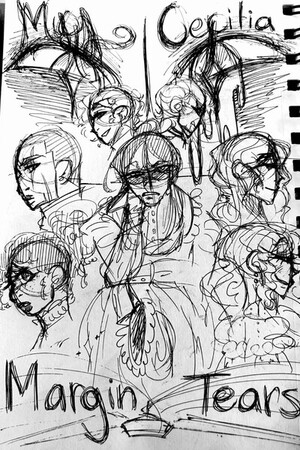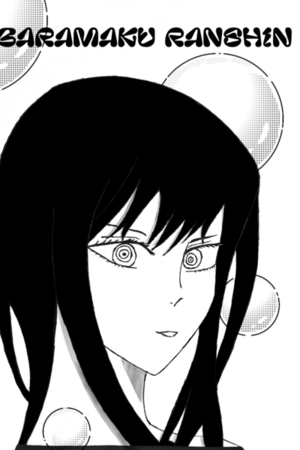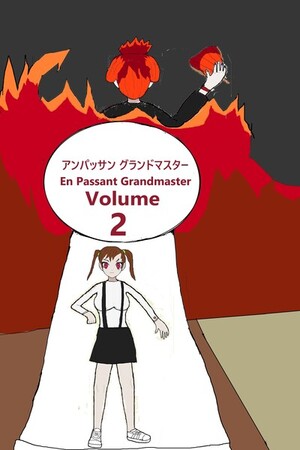Chapter 35:
You Will Comply
Margin Tears: My Cecilia
The chandeliers above were a frozen galaxy, suspended on threads of gold, their light glancing off polished marble and tall mirrors that multiplied the room into infinity. Their crystals caught and fractured the light into shimmering constellations that turned the grand ballroom into a palace of stars. Music cascaded from the strings of violins, steady and confident, rising and falling like a tide. Dancers moved in graceful orbits, their laughter and gossip blending into a pleasing din. The ballroom was alive, crowded with dancers, the swish of gowns and the steady cadence of violins. It was a night meant to dazzle, to impress. Perfume mingled with candle smoke, laughter collided with conversation…
And beneath it all, the lord moved like the eye of the storm—his charm, his voice, his presence, the axis around which the night turned.
The lord of the house stood tall, gliding from group to group, his smile quicksilver, his voice rich with charm. He shook hands, kissed knuckles, whispered witticisms that rippled into polite laughter. His presence commanded every eye, every step. He seemed untouchable, a celestial body that the others merely revolved around.
Cecilia clutched her tray of glasses at the edge of the floor. She moved carefully, weaving between swaying skirts and polished boots. But her eyes found him again and again, not with admiration but with the sharpened edge of suspicion. It was impossible to forget what she had begun to learn of him—the cracks beneath the charm, the hunger masked by courtesy.
And when his gaze slid toward her—just for a fraction of a heartbeat—she did not look away.
That was her mistake.
A flicker crossed his face. A tiny dimming of light in his smile. Then it was gone, buried beneath smooth conversation with a nobleman at his elbow. But Cecilia felt the weight of it linger. Her defiance, small as it had been, had not gone unnoticed.
When the music reached its crescendo, he clapped once. A crisp, deliberate sound. Then, with a snap of his fingers, the room changed.
The laughter cut off. The violins silenced mid-note. The dancers vanished like smoke in wind.
The ballroom, once crowded and alive, was empty.
The chandeliers burned on, but their light was colder, harsher. The mirrors that lined the walls reflected only Cecilia and him. The silence pressed so heavily that she could hear the faint crack of wax cooling on abandoned candlesticks.
He stood at the center of the room, no longer host, no longer charming. The mask was gone. His features were sharpened, hard as marble, every ounce of warmth evaporated. His eyes fixed on her with a judgment that rooted her in place.
“You think me blind?” he asked, voice low but carrying effortlessly across the cavernous room. “You think your little rebellions go unseen?”
Cecilia’s fingers tightened around the tray until the glasses rattled. “I did nothing,” she whispered.
“Nothing.” He let the word echo, distorted by the mirrors, multiplied until the room seemed to sneer it back at her. Then his smile came—not charming this time, but razor-thin. “You looked at me as though I were… less. As though my place here, my dominion, was yours to question.”
“You can command the whole house,” Cecilia said, anger flaring despite her fear, “but you cannot command my thoughts.”
He advanced, each step deliberate, echoing across marble. “Your thoughts?” His voice grew sharper. “Your thoughts exist because I permit them to. Do not delude yourself, girl. You breathe in my story. You wake and sleep at my whim. And still, you dare to imagine defiance?”
Cecilia’s chest tightened, but the words slipped out before she could stop them. “Perhaps I dare because you are not as untouchable as you claim.”
His eyes flashed. For the first time that evening, his temper cracked through the carefully cultivated veneer. “You mistake tolerance for weakness. You mistake my indulgence for ignorance. I have allowed your insolence because it amused me. But amusement wanes.”
Their voices clashed, rising like thunder in the hollow room. She accused him of cruelty, of treating lives like toys for his pleasure. He dismissed her with icy contempt, twisting her words into folly, painting her defiance as childishness. The ballroom became a stage for their battle, each accusation bouncing from mirror to mirror, growing louder, more venomous.
Finally, he raised his hand, and the air itself recoiled.
The chandeliers swayed as though buffeted by some unseen tide. The mirrors bulged and warped, swallowing and spitting out reflections that no longer matched Cecilia’s movements. The marble floor shivered underfoot, cracking into a thousand splinters that stretched into an abyss.
“Enough,” he thundered. His voice was a command that the very fabric of the world obeyed. “If you are so desperate to test me, then learn what disobedience costs.”
With a sweep of his fingers, the world frayed.
He kneaded the edge of the world like an old, stubborn sweater.
At first, it was almost tender—his fingers ghosting along the seam where sky meets roof—and Cecilia thought, absurdly, that he was only testing.
Then the thread gave.
The guttering light at the window thinned to a hairline and snapped; sound drained out of the room in a slow, shuddering exhale. The candled air trembled as if someone had plucked a chord inside the house and the vibration kept pulling the room longer, syllable by syllable.
"Do you think this is a game?" his voice came from everywhere and nowhere, close as the plaster and vast as the corridor. It was not a voice that rose or fell so much as one that rearranged the space between breaths. The walls tilted inward as he spoke, hallway doors stretching like the bars of a harp. The floor peeled back, revealing a dark tapestry of ages—years threaded together in dusty braid—before he plucked a strand and a cold wind of memories slid across Cecilia’s face. Faces she knew, faces she didn’t, moments she thought were hers, thoughts she’d suffered to bury—All unfurling and skittering like loose coins.
Reality tore.
The marble floor stretched into miles. The chandeliers bent and twisted until they were constellations writhing above her. The mirrors rippled, revealing faces she half-knew—lives, deaths, mistakes—each one a wound laid bare. Her own body no longer obeyed her; her breath shuddered as though every lungful was stolen from another time, another version of herself.
He wove space and time like strands of rope and pulled them tight around her mind until she staggered. “This is nothing,” he intoned, cold fury burning in his eyes. “A single taste. Do you feel how easily I can undo you? How effortlessly I can unmake everyone in this tale?”
The world convulsed one last time—then, with a flick of his hand, the torment ceased.
The ballroom snapped back into place. Empty still, but solid, ordinary. Cecilia collapsed against the mirrored wall, gasping, her reflection pale and trembling.
He stepped close, his shadow cutting across her, and lowered his voice. “You want to play with my story? Misalign my reality? Fine, you can have fun. I think you’ve had plenty enough already, but I’m happy to let you continue. Meanwhile, I will enjoy it in turn. Knew this, Cecilia. I know your fears, your joys, your greatest regrets. I know who your most cherished allies are, when you father sleeps, where your mother is buried. I am happy to pay them each a visit so that they may enjoy our games as well. It would be great fun, and it would bring me unadulterated joy.”
Her knees wanted to buckle but the tiles couldn’t decide if they were thirty feet away or directly beneath her feet; her hands fumbled for purchase that kept stretching until the handle of the chair felt like a life raft in a sea turned to glass. The clock on the mantel exaggerated its next tick: it took three heartbeats, then six, then collapsed like a gasp. Seconds folded back on themselves. Outside, the garden shot upward into a column of frozen rain; inside, a dress from some other century drifted through the doorway as if remembering where it once belonged. The smell of the manor—wax, dust, the acid tang of old tea—became a chorus of smells, layered until nausea rooted her.
"You will learn," he said, and the syllables were small stones thrown into a lake; each ripple was a recalibration of everything that was, nudging the house into new geometries. He was angry—Not the polite, brittle anger of a man offended at a slight, but the private, collected ire of someone correcting a mistake that embarrassed him. “You flout me. You smile when you think I cannot see. You treat my rules like toys. That arrogance—” He gave a tug of his hand, and the ceiling seams unthreaded, revealing not plaster, but a scatter of constellations she had never seen, stars like sewing needles. The light there was surgical. It picked out the tremor in her lip, a childhood promise she had forgotten, the exact moment she decided she would never ask for mercy.
Images lashed at her: the attic where she first learned to be small, the bedside where a boy once said her name as a joke and meant something else, hands—other hands—closing a drawer she thought she remembered opening. Her sense of time was a rag being rubbed raw between his palms; every thread he pulled was a secret revealed and a scar reopened. She tasted metal. She could not tell whether she was crying, or if the world is leaking, or if she was just dying altogether.
"Look at you," he said, and for the first time, there was almost pity in it.
The pity was worse.
“You, my Cecilia, my little maid—So clever and so, so stupid. You believe small rebellions will go unnoticed. You believe disrespect is unseen."
The air around her tightened like a fist. The corridor yawned wider, then folded itself into a single doorway that contained a whole childhood. He stepped through it, and because he was the one stepping, the door clamped in on itself and slammed the childhood shut. Cecilia grasped at the latch and it would not give; the grain of the wood was the grain of his patience. He smiled without moving his mouth.
Then, as abruptly as a seam mended with a single stitch, the house righted itself.
Light snapped back to its ordinary thickness. The floor settled; the chair was, once more, the chair she had always known—no longer a raft, no longer a plucked string. The clock resumed its regular, indifferent ticking. The dress slid off the threshold and was only a memory of movement. Her breath returned, jagged, like she’d been drowning and managed to finally break through to the surface: it burned, it came too fast, and it was not fast enough. Her hands were wet; whether from sweat or tears, she could not tell.
He watched her. The room contained him and the room did not contain him. There was a small, contemptuous softness in the line of his voice when he spoke now, as if delighting in the aftertaste of a lesson served.
"Do not ever disobey me again," he said, quiet, but heavy with promise. The words were ordinary—no lightning, no unthreading—yet they landed with the weight of everything that just happened. "Not for insolence. Not for curiosity. Not for the private rebellions of your heart. There are punishments I have not shown you. If you defy me once more, I will show you ones far beyond what you can imagine, ones you will have to learn to comprehend just so it hurts more than it confounds you. And I will not stop until every shred of your will is extinguished."
He inclined his head, like a man closing a book. Outside, somewhere past the ordinary hedges, the world resumed its routined breath. Inside, Cecilia felt as if something fundamental in her had been stitched tighter, hidden beneath layers that will bruise if pressed.
She swallowed. The taste of metal hadn’t left.




Please sign in to leave a comment.